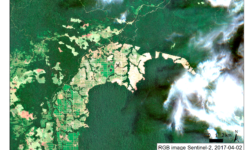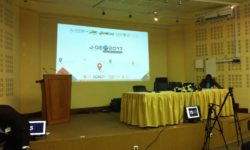The European Commission and the European Space Agency (ESA) jointly organised a Side Event at the COP23 in Bonn on 9th November 2017. The Side Event, “Progress in monitoring forest degradation Perspectives from the Sentinels for REDD+” had the objective to present on-going technical work on the use of Earth Observation (EO) data for assessing deforestation and degradation in 2 specific projects; the EC supported ReCaREDD and EOMonDis. Several developing countries (Brazil, Cambodia, Cameroon and Nepal) were able to present recent progresses in the use of satellite data for measuring changes in forest cover which are leading to decrease in carbon stocks within forests. The Side Event also had the objective to raise awareness on the Copernicus Programme, which provides free satellite data of up to 10m spatial resolution globally. The Cameroon case was presented by Mr. Moussa Nguemadji from the national REDD+ Secretariat; he reviewed the current status of REDD+ in the country and highlighted the important developments in terms of developing a national Monitoring Reporting and Verification (MRV) Guideline. In this context the developments in the EOMonDis project will be important contributions to the MRV Guidelines and he acknowledged the European Commission for supporting the project. He then presented the advantages of using the ESA Sentinel data for tropical forest monitoring and how the data is being used with dense time series in the EOMonDis project for overcoming technical challenges in tropical forest monitoring. Results for the Land use and forest cover maps for the 2 test sites were noted as well as the accuracies achieved. The presentation concluded with points on the importance of using national forest datasets in the REDD+ process.
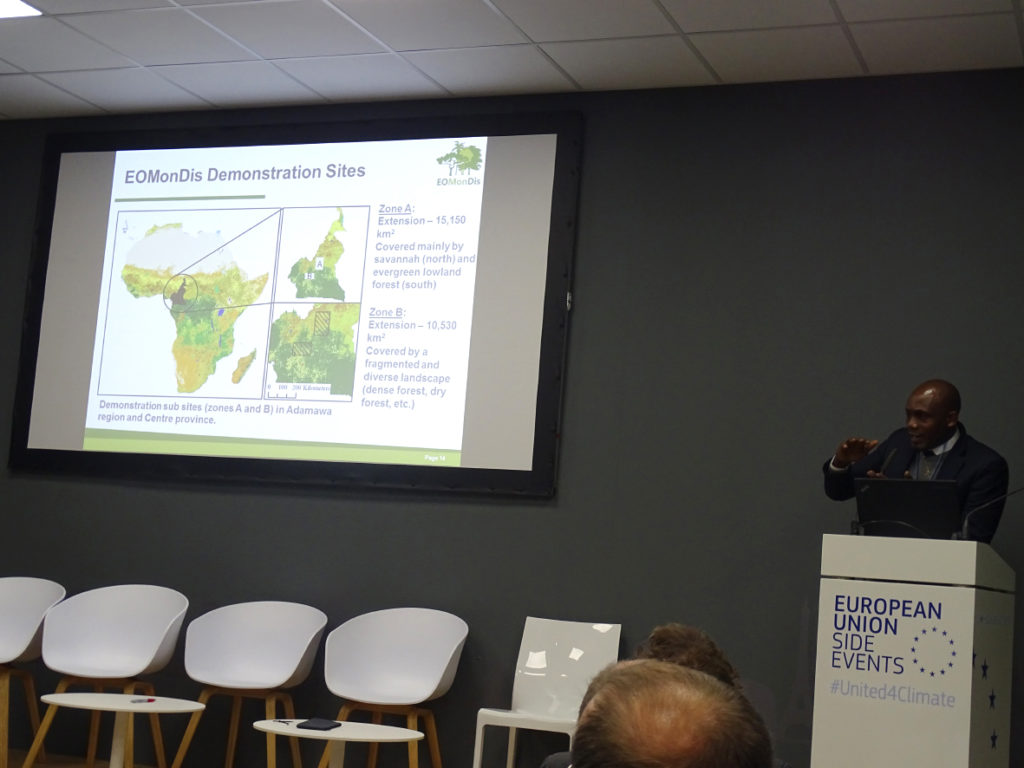
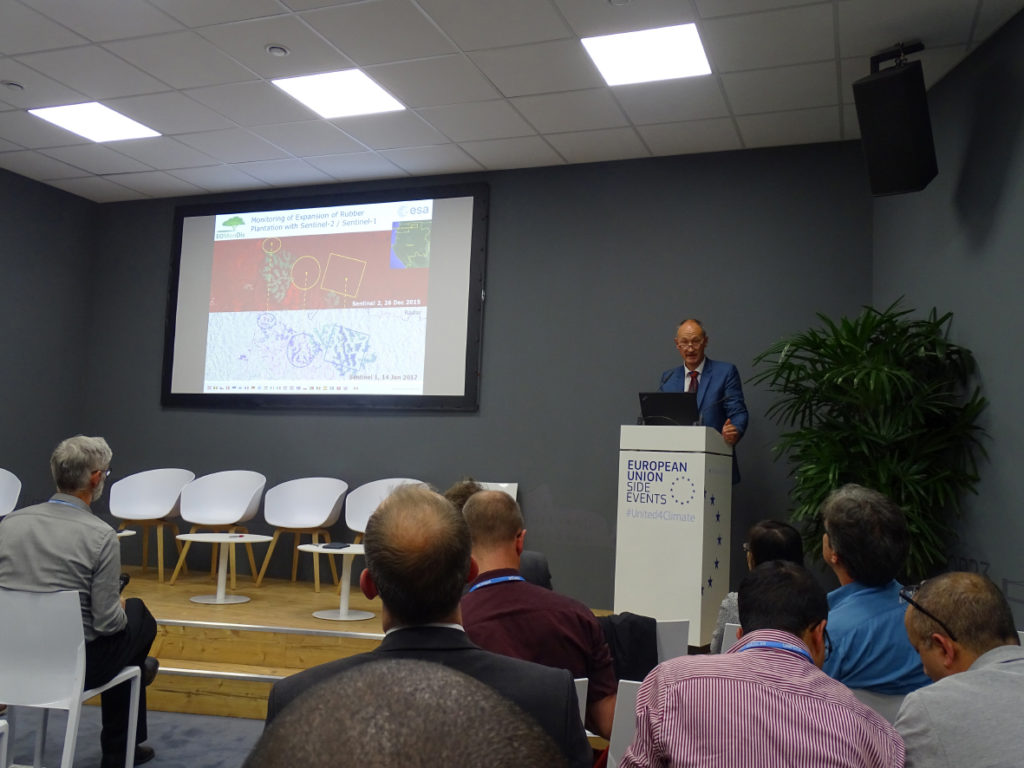
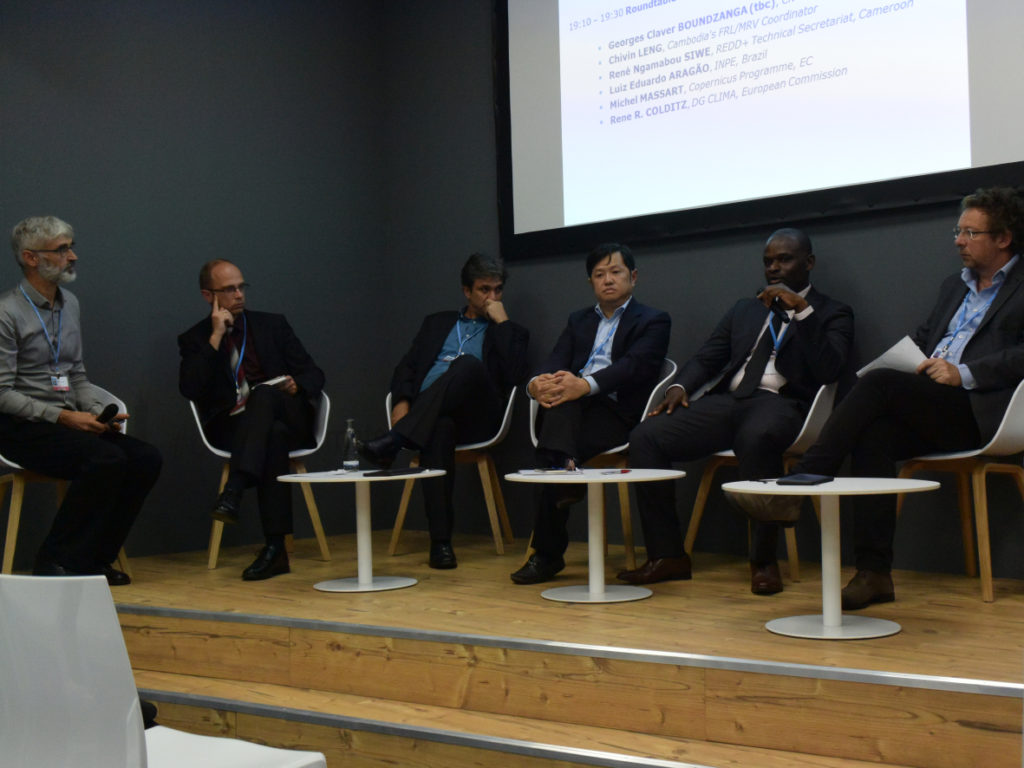
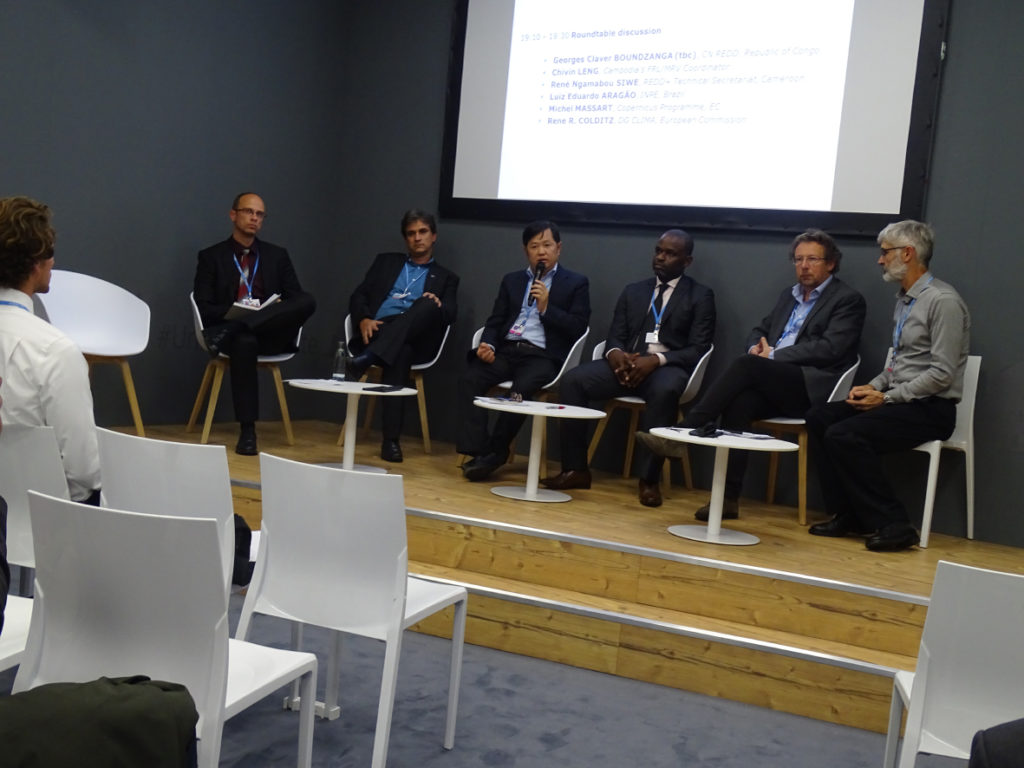
In this Side Event Dr. Frank Martin Seifert from ESA in the context of using Sentinel data for tropical forest monitoring presented results from Gabon and Malawi from the EOMonDis project.
The Side Event was well attended and the Plenary Session included Dr. Rene Colditz from DG Climate, as well as representatives from the different countries. Dr. Rene Siwe from the Cameroon REDD+ Technical Secretariat drew attention to the need for biomass assessments from EO as being important for emissions reductions in the near future. Thus, the technical and development work undertaken in EOMonDis has important ramifications for the national REDD+ processes.

